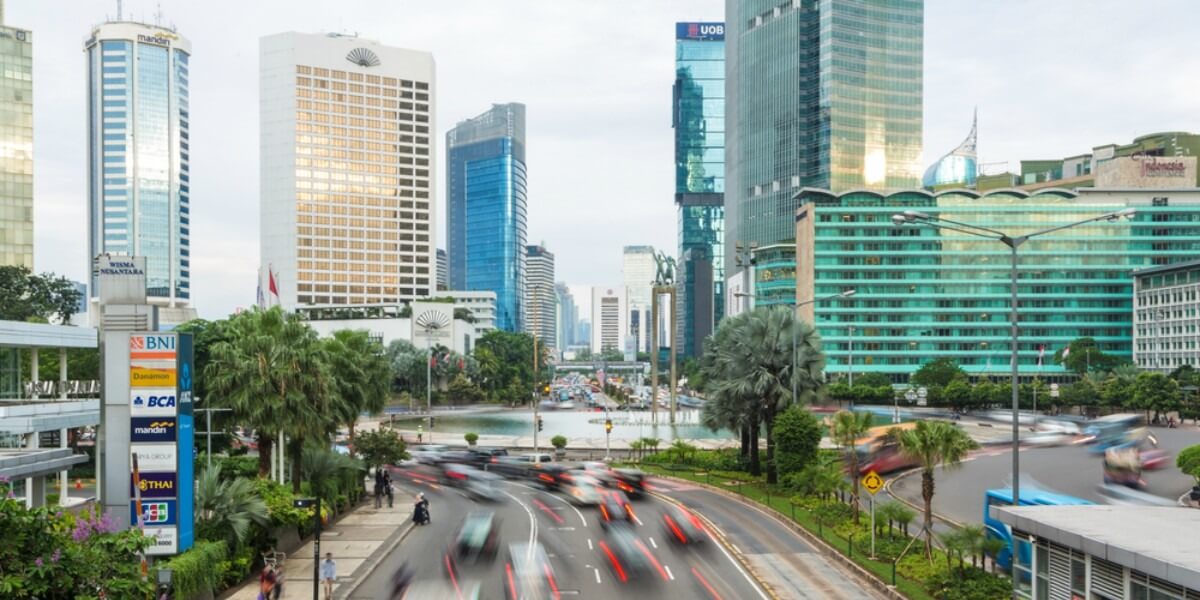Indonesia's three-way merged Islamic bank to start operations in February 2021
JAKARTA – Three of Indonesia’s state-owned Islamic banks have completed their plan to merge by February 1, 2021.
The merged entity of PT Bank BRI Syariah Tbk, PT Bank Syariah Mandiri and PT Bank BNI Syariah will be called PT Bank BRISyariah, Hery Gunardi, Bank Mandiri’s deputy president director who is leading the merger team, told reporters at a virtual press conference on Wednesday (Oct 21).
The shareholders of the merged entity are PT Bank Mandiri (51.2%), PT Bank Negara Indonesia (25%), PT Bank Rakyat Indonesia (17.4%), DPLK BRI - Saham Syariah (2%) and public investors (4.4%). The government remains the biggest shareholder via the state-owned banks.
PT Bank BRISyariah will be listed on the Indonesia Stock Exchange.
The merged bank will hold combined assets of 214.6 trillion rupiah ($14.6 billion) and combined core capital of 20.4 trillion rupiah ($1.3 billion).
The ultimate aim of the merged entity is to become a top 10 global bank by market capitalization five years post-merger.
“The government, via the ministry of state-owned enterprises, will oversee the whole merger and post-merger process not only in terms of legal matters, but also to ensure that we are able to compete in the global market as the global hub for the Shariah economy at the end of the day,” said Hery.
Indonesia’s Islamic banks hold a very low proportion of total banking assets, below 7%, according to Hery. Their share of sukuk issuance is also very low, under 5%.
In the retail segment, the merged bank will focus on hajj and umrah financing, zakat, infaq, sadaqah and waqf, education, health, and international remittance.
The proposed merger comes at a time when demand for Shariah-compliant banking is rising in Indonesia, especially among the middle class, credit rating agency S&P wrote on Oct 14 citing Angus Mackintosh, an analyst at Smartkarma.
In the corporate and wholesale segments, Bank BRISyariah will focus on industries that are currently underserved by Islamic banks, including large-scale infrastructure projects that are aligned with the government’s mid- and long-term development plans.
In the micro and SME segment, Bank BRISyariah will focus on serving unbanked MSMEs directly and indirectly by collaborating with the other big four state-owned banks and government agencies.
Analysts expect more M&A activity within the Indonesian banking space, mainly for smaller banks to remain competitive, said S&P. Indonesia’s biggest banks are currently PT Bank Central Asia Tbk, Bank Mandiri, Bank Rakyat Indonesia, and Bank Negara Indonesia.
Key stats about the merged bank:
- Ranked seventh or eighth in the top 10 of Indonesia’s banks by assets. BRISyariah will be the only Islamic bank in this position.
- Indonesia’s biggest Islamic bank in terms of total assets, around 214.6 trillion rupiah
- BUKU III bank category with core capital of 20.4 trillion rupiah
- 1,200 branches across Indonesia
- 1,700 ATMs across Indonesia
- 20,000+ employees across Indonesia
- Will serve MSMEs, retail, commercial, wholesale, corporate for both local and global investors, including optimizing Global Sukuk
| BRI Syariah | Mandiri Syariah | BNI Syariah | |
| Total assets (rupiah) | 50 trillion | 114.40 trillion | 50.76 trillion |
| Financing (rupiah) | 36.4 trillion | 75.61 trillion | 31.33 trillion |
| Third-party funds (rupiah) | 41 trillion | 101.78 trillion | 43.64 trillion |
| Profit Q2 2020 (rupiah) | 117.2 billion | 719 billion | 266.64 billion |
| Number of customers | 3.8 million | 8 million | 3.6 million |
| Number of branches |
|
736 outlets | 385 outlets |
| Number of employees | 5,790 | 8,612 | 5,692 |
(Reporting by Yosi Winosa; Editing by Emmy Abdul Alim [email protected])
© SalaamGateway.com 2020 All Rights Reserved
